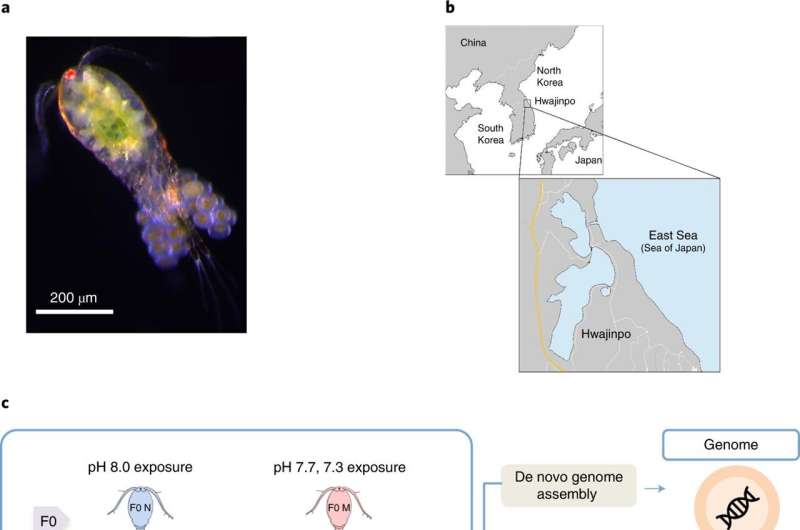Marine animals able to cope with ocean acidification through epigenetic changes

International research co-authored by scientists at the Education University of Hong Kong (EdUHK) found that a major type of marine species can adapt to ocean acidification. Considered a major breakthrough in marine biology research, the findings were recently published in the journal Nature Climate Change.
As our planet is witnessing an ever-increasing level of carbon dioxide emissions, the threat of ocean acidity has become all the more acute. To examine the long-term effects of ocean acidification on biodiversity and the food chain, seven scholars from South Korea, mainland China, Hong Kong, and the United States carried out a two-year study on the reproduction of marine species in an acidified environment.
One member of the research team was Professor Rudolf Wu Shiu-sun, Advisor (Environmental Science) in the Department of Science and Environmental Studies at EdUHK, who was responsible for relating the phenotypic and epigenetic changes among marine organisms, and explaining the relevant environmental implications of the study.
The team chose as its research subject copepods, one of the most abundant classes of zooplankton, which plays a key role in the food chain in the marine environment. To mimic ocean acidification, copepods were placed in water with increasing acidity (pH 8.0, pH 7.7 and pH 7.3) to evaluate the impact of acidification on their ability to reproduce.
The results showed that in an acidified environment, the fertility and sex ratio of copepods were adversely affected in the first and second generations (F0 and F1), but were significantly restored in the third generation (F2). This suggests that copepods have a self-repairing ability to adapt to environmental change.
According to Professor Wu, the "self-repairing mechanism" of copepods is the outcome of epigenetic changes (i.e., DNA methylation). The changes occurred in specific regions of genes associated with reproductive resilience.
Professor Wu pointed out that most environmental studies nowadays focus only on the immediate impact of ocean acidification, without looking into its transgenerational effects. He said, "This study indicates that the mechanism may also apply to other species, thus providing a new perspective for future scientific research."
However, Professor Wu stressed that ocean acidification is irreversible and has detrimental effects on marine animals such as corals, urchins and shellfish and that this damage to the marine ecosystem is beyond repair. He called for collective action from governments around the world to reduce carbon emissions in an effort to save the Earth.
More information: Young Hwan Lee et al, Epigenetic plasticity enables copepods to cope with ocean acidification, Nature Climate Change (2022). DOI: 10.1038/s41558-022-01477-4
Journal information: Nature Climate Change
Provided by The Education University of Hong Kong

















